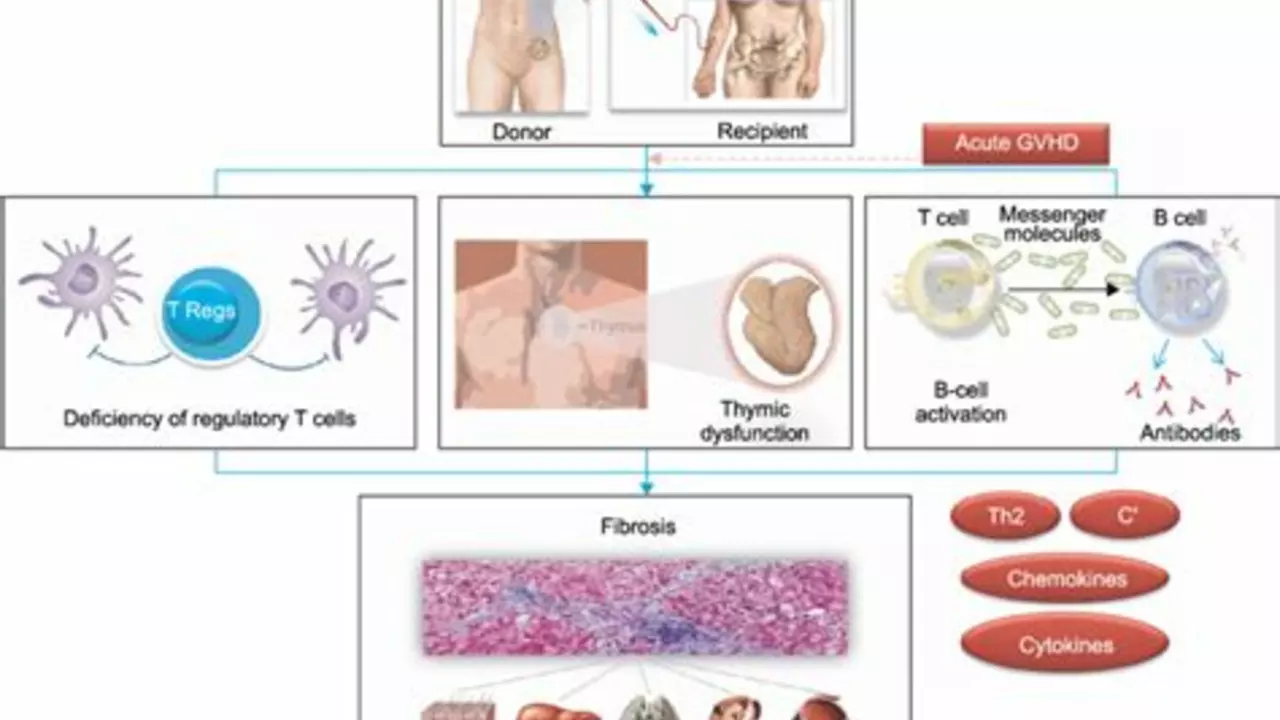Understanding Cell Lymphoma and Graft-versus-Host Disease
As a concerned individual or perhaps someone who has been affected by these medical conditions, it is important to understand the connection between cell lymphoma and graft-versus-host disease (GVHD). In this article, we will delve into the relationship between these two medical conditions and provide valuable insights for better comprehension.
What is Cell Lymphoma?
Cell lymphoma, also known as Non-Hodgkin's lymphoma, is a type of cancer that originates in the lymphatic system, which is an essential part of our immune system. This cancer occurs when the lymphocytes – the white blood cells responsible for fighting infections – start to grow uncontrollably and form tumors. There are several types of cell lymphoma, and each has its own unique characteristics and prognosis.
What is Graft-versus-Host Disease?
Graft-versus-host disease (GVHD) is a medical complication that can occur after a patient receives a stem cell or bone marrow transplant from a donor. In this situation, the donor's immune cells mistakenly recognize the recipient's body as foreign and start attacking it. GVHD can be classified as acute or chronic, depending on the time of onset and severity of symptoms.
The Link between Cell Lymphoma and GVHD
One might wonder how these two seemingly unrelated conditions are connected. The relationship between cell lymphoma and GVHD lies in the treatment process. When a patient with cell lymphoma undergoes a stem cell or bone marrow transplant, there is a risk of developing GVHD as a post-transplant complication. This risk is especially higher in allogeneic transplants, where the donor and recipient are not genetically identical.
Preventing GVHD in Cell Lymphoma Patients
Medical professionals are constantly looking for ways to minimize the risk of GVHD in patients undergoing stem cell or bone marrow transplants. One approach is to use medications that suppress the immune system, thus reducing the chances of the donor's immune cells attacking the recipient's body. Another technique is to match the donor and recipient as closely as possible in terms of their human leukocyte antigen (HLA) types, which can significantly lower the risk of GVHD.
Managing GVHD in Cell Lymphoma Patients
If a patient with cell lymphoma does develop GVHD after a transplant, it is crucial to manage the condition effectively to prevent further complications. This usually involves administering medications that suppress the immune system and help control the symptoms of GVHD. In some cases, additional treatments like photopheresis, extracorporeal photopheresis (ECP), or low-dose radiation therapy may be recommended to manage GVHD.
Impact of GVHD on Cell Lymphoma Prognosis
GVHD can have a significant impact on the prognosis of a patient with cell lymphoma. Severe GVHD can lead to organ damage, infection, and even death. Moreover, the medications used to manage GVHD can cause side effects and increase the risk of other complications. Therefore, it is essential for patients and their medical team to work closely together to monitor and manage GVHD appropriately.
Emotional Support for Cell Lymphoma Patients with GVHD
Dealing with GVHD as a complication of cell lymphoma treatment can be an emotionally challenging experience. It is crucial for patients to have a strong support system in place, including friends, family, and healthcare professionals. Support groups, counseling, and educational resources can also be helpful in coping with the emotional stress of dealing with GVHD and cell lymphoma.
In conclusion, the connection between cell lymphoma and graft-versus-host disease lies within the treatment process. By understanding the relationship between these two conditions, patients and caregivers can better navigate the challenges that may arise during the treatment journey.


Write a comment